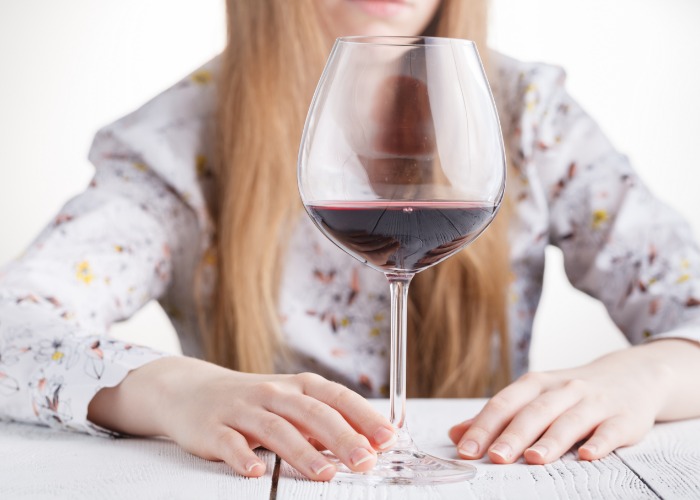Case study: getting fired for alcoholism devastated my finances

To mark Go Sober for October, our writer talks to someone whose alcoholism ruined her financial life.
Vanessa, 29, a copywriter from London, describes how she lost her job on her birthday after routinely drinking in the workplace and the effect her alcoholism had on her personal finances.
The cost of alcoholism
"After 10 years working in the media, I'd finally managed to get a job with a decent salary, but I wasn't happy.
The company was too corporate and didn't match my personality. It just wasn't the type of environment I wanted to be in.
Most mornings, I'd drink a bottle of wine before I left my flat for work and then sneak into the loos on my train during my commute to drink from a bottle of vodka.
I used to hide mini bottles of booze in my bra while I was at work and then sneak into the toilets to drink in the office.
Looking back, it was so weird and embarrassing.
Losing my job
My line manager soon sussed I was drunk on the job and asked if I'd been drinking at lunchtime.
At this stage, my finances were already in a mess.
I frequently missed payments on my regular bills and had taken out payday loans to cover the cost of the booze.
Being sacked was one of the worst things that has ever happened to me.
Because it was my birthday, I arrived in the office and my boss handed me a card signed by everyone in my team.
I felt like I was finally making friends after a rocky start.
Later that day, he put a meeting in my internet calendar. I had no idea what it was about.
When I turned up, there was a woman from HR who said there had been numerous reports that I smelled of alcohol and I couldn't really deny this, although the company was very happy with my performance.

Head this way to learn more about getting free debt advice
Struggling with the benefits system
After getting sacked, I tried to find freelance media work, but just wasn't in the right frame of mind to do anything and it was almost impossible to apply for state benefits.
Under the Universal Credit system, you'll need to adjust your claim every month depending on how much you make, which means it's almost impossible to have an income that varies week by week.
I just couldn't pay for anything. I didn't care about my bills. All I wanted was to buy booze.
My phone bill didn't matter and I ignored all the calls from my bank about overdue my credit card payments.
I took out payday loans and none of my bills meant anything to me. Getting drink was the only thing that mattered.
I knew I owed money and my payday loan payments were due the next day, but I'd sneak out to the supermarket at four o'clock in the morning to buy a bottle of vodka.
In the end, I knew I needed to get help with my mental health and get my finances sorted.
I know I would have killed myself if I had carried on drinking the way I had.
I decided to get counselling and regularly went to AA meetings.
I'm still in debt, but now I'm not drunk all the time I can make better decisions about my personal finances. I've stopped drinking and borrowing money.
If I'm honest, concerns about money still keep me awake most nights, but now I feel like I can get things under control.
I doubt I'll ever get on the property ladder, which is pretty humiliating when you're almost 30 and hardly any of my family are talking to me, but at least I now feel confident buying booze won't leave me bankrupt."
Read: where to get therapy even if you’re on a low income
How to learn more
If you're concerned about the implications an alcohol addiction could have on your finances (or someone you know), there are a number of organisations that can help:
For everyone: watch the cost of drinking
Whether or not you have a problem with alcohol, the cost of drinking can quickly spiral out of control.
Imagine you spend £10 week on alcohol (easy to do if you visit the pub once a week), this would equal £520 a year.
Or imagine you spend £20 per week (perhaps buying two bottles of wine from the supermarket), this would equate to more than £1,000 per year.
What if you spent £30 a week? (a not unreasonable sum if you regularly visit the pub and buy alcohol for inside the house).
This would equal £1,560 per year and a staggering £15,600 over the course of a decade.
In certain regions, this would be enough help put you on the property ladder.
Comments
Be the first to comment
Do you want to comment on this article? You need to be signed in for this feature